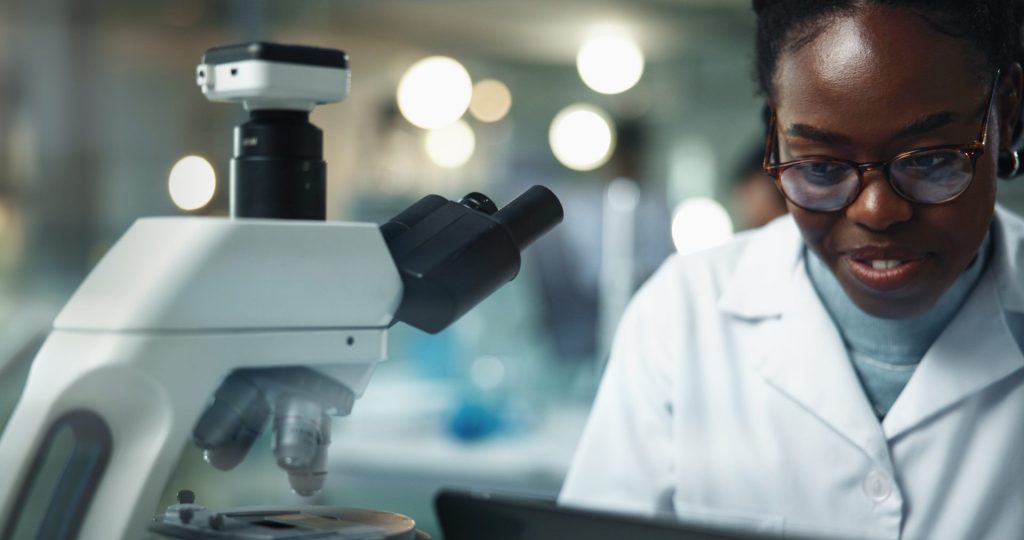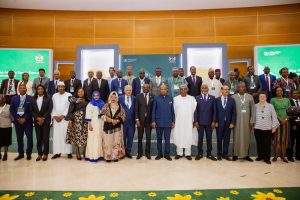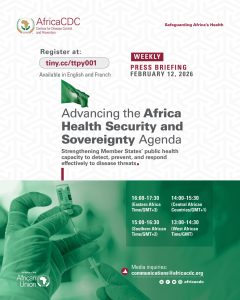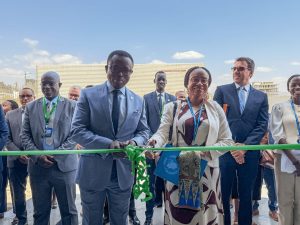A transformative leadership training spearheaded by Africa CDC and the UK Health Security Agency (UKHSA) is helping drive Africa CDC’s vision through continuous training of laboratory experts across the continent.
The Official Development Assistance (ODA) funded project on International Health Regulations Strengthening Project (IHR _SP) with support from the World Bank gathered thirty-four laboratory professionals from 15 AU Member States across Eastern and Southern Africa in Lusaka from June 30 to July 4, 2025, for the training.
“Africa CDC was built on a bold vision for a self-reliant, resilient continent. Our Laboratory Leadership Program reflects that vision by equipping our technical experts with the leadership skills needed to strengthen laboratory systems across Africa,” said Donewell Bangure, Senior Epidemiologist at Africa CDC. “When labs are led well, they become the engine rooms of disease surveillance and public health response.”
The training, part of the Africa CDC Laboratory Leadership Program, builds on successful sessions previously held in Nairobi, Addis Ababa, and Dakar. This growing initiative is a direct investment in Africa’s future public health resilience, aligned with the New Public Health Order and Agenda 2063.
“Empowering lab professionals with leadership tools is no longer optional. It’s a necessity for building resilient, integrated systems capable of responding to current and emerging threats,” said Dr. Lul Pout Riek, Regional Director of Africa CDC Southern Africa Regional Collaborating Centre, officially opening the workshop.
Dr Riek was emphatic about the foundational role of laboratory networks in Africa’s health architecture.
The five-day training incorporated leadership modules, quality management systems, risk management, scenario-based learning, and personal development plans.
Participants from Zimbabwe, Zambia, Malawi, South Africa, Mozambique, Namibia, Eswatini, Uganda, Kenya, Tanzania, and other countries engaged in intensive sessions aimed at redefining their roles from technical experts to strategic leaders.
One of the standout voices was Ms. Dorothy Moyo from Malawi, Chief Laboratory Scientist, of the National TB Reference Laboratory. The training gave me confidence to lead with clarity and purpose. I returned to Malawi empowered, and I can now see a measurable difference in how I guide my team and contribute to national health outcomes,” she said reflecting on her journey as a past participant.
A Community of Practice was launched to ensure ongoing collaboration and mentorship beyond the workshop.
UKHSA’s (IHR _SP) Country Lead Dr. Ashley Sharp praised the enduring partnership: “Our collaboration with Africa CDC is rooted in mutual respect and a shared goal: strengthening Africa’s public health laboratories. This is our fourth training together, and it’s a testament to what respectful, strategic partnerships can achieve.”
Africa CDC and UKHSA have pledged to continue scaling this impactful program. With each cohort, the continent grows closer to achieving a critical mass of laboratory leaders who are not only scientifically proficient but also visionary in leadership.
The Lusaka session is seen as a pivotal step in a broader movement to institutionalize leadership in Africa’s health landscape, driven by collaboration, innovation, and a commitment to safeguarding health for all said Bangure.







